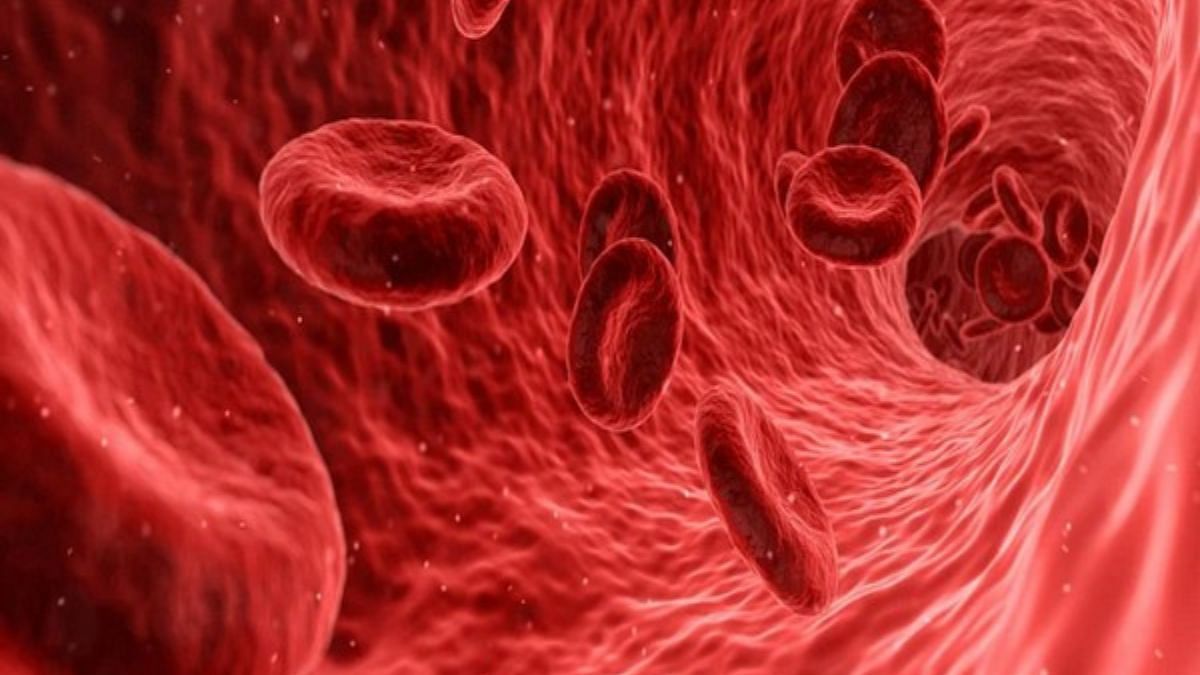Bengaluru: A new study has discovered that one of the prominent bacteria that resides in our intestines is able to produce a mix of enzymes that can convert any person’s blood group to type O.
The bacteria, Akkermansia muciniphila, degrades complex sugar chains in our blood cells that need to match with donors or recipients during blood transfusions, converting A, B, and AB groups to a the universally-compatible O.
The enzymes produced by the bacteria are also effective against newly-discovered extended versions of the blood groups A and B. Such blood group conversion shows tremendous promise in providing a clinal solution for increasing the availability of universally-compatible blood in medicine.
The findings were published in the journal, Nature Microbiology, this week.
The blood group of an individual is determined by the type of antigen molecules that are present on the surface of red blood cells (RBCs). Antigens are made up of sugar and protein that line the surface of these cells, and are also used by our immune system to detect foreign bodies.
During blood transfusion, a person with A antigens will reject blood containing B antigens and vice versa. Blood group AB has both antigens, while O has none. To prevent the immune system from fatally attacking transfused blood, blood compatibility is required. The blood group O, owing to lack of antigens, is universally compatible.
Also read: Fixing rates for procedures in private hospitals not a good idea, states may decide, Centre tells SC
The team behind the paper, led by Dr. Maher Abou Hachem, professor in the Department of Biotechnology and Biomedicine at the Technical University of Denmark, and Dr. Martin L Olsson, professor in the Division of Hematology and Transfusion Medicine at Lund University, has been exploring methods to convert the blood groups A and B to the group O in order to alleviate blood shortages that affect medical systems today.
They studied the A. muciniphila bacteria’s enzymes in the lab and also the biochemical molecular reactions which break down the sugars in blood antigens. These sugars occur as mucin, which is a form of glycoprotein chain that protects our intestines by lining the mucus layer inside. This mucus layer of our gut protects the intestine from chemical and acidic reactions during the digestion process, and also aids in enabling the flow of material through it.
The researchers screened the bacteria to obtain a combination of unique enzymes, which was capable of converting blood cells A and B to O by eliminating the antigens present on them. They concluded they would need about 8g of the enzyme to convert 200 ml of A and B red blood cells. The converted blood group is typically referred to as “enzyme converted to O” or ECO blood.
Conversion of A, B, and AB to O type is not a new concept, and has been performed in the past using other bacterial enzymes, back in 2007. But the process is not efficient, easy, or safe yet. The authors built upon this existing method and the new findings are likely the most efficient method to convert AB types to O.
“Our conversion of RBCs was uniquely performed at the highest red blood cell concentration (38% haematocrit), shortest assay time (30 min) and lowest temperature (room temperature), compared to previous work,” the researchers said in their paper. “These mild conditions without additives (for example, dextran) together with excellent enzyme efficacies are important feasibility parameters in clinical applications.”
During the process, the researchers discovered they could convert blood type B much easier than they could A. Additionally, they were also able to convert the recently-discovered extended A and B blood groups, thus working on all ABO blood group systems (among the existing 44 types of blood group systems).
Owing to its universal compatibility, those with the blood group O even today make up the highest percentage of blood donors anywhere.
The authors suggested their findings could also be used to alleviate the blood-donor crisis by converting blood types to O. However, they noted in the paper that more work needed to be done to improve the efficiency for converting Type A blood.
(Edited by Tikli Basu)
Also read: Are the spices being sold in Indian market safe? Lack of testing and poor law enforcement concerns

